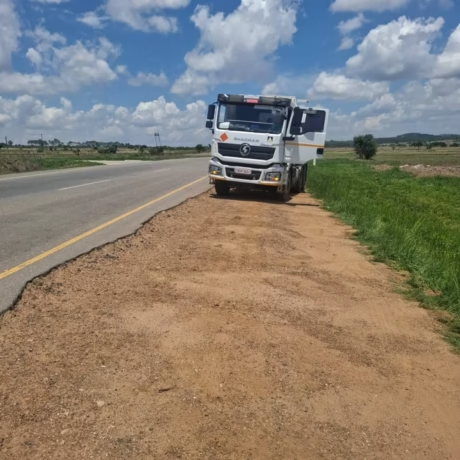
Zimbabwe and Iran’s excellent bilateral relations are poised to expand on the economic front after a manufacturing giant expressed interest in setting up shop in Zimbabwe.
The Iran Tractor Manufacturing Company (ITMCO), listed among the 100 fortune companies in the Asian country, unveiled the investment plan in a meeting between Vice President Dr Constantino Chiwenga and Iran’s first Vice President, Mohammad Mokhber, on the sidelines of the ongoing second edition of the Iran-Africa International Economic Conference.
ITMCO specialises in the production of tractors, trucks, vehicle parts and diesel engines with its main site and headquarters in Tabriz, Iran.
The meeting also saw Iran expressing interest in Zimbabwe’s lithium and gold with VP Chiwenga pledging to engage his principal, President Mnangagwa, to look at the best possible mutually beneficial framework.
Zimbabwe hopes tap from from Iran’s experience, particularly on how the energy powerhouse has managed to champion economic development despite being pegged back by economic sanctions imposed by the West decades ago.
Petroleum products account for a large chunk of Zimbabwe’s import bill and there is scope for Zimbabwe to benefit from collaboration with Iran after the African country recently discovered oil and gas deposits in its northern part.
Iran has also advanced extensively in the areas of Information Communication Technologies (ICTs) and pharmaceutical manufacturing.
Zimbabwe is in search of partners and expertise in the areas, among others, as it forges ahead with rapid economic development towards an empowered upper middle income economy by 2030 as envisioned by President Mnangagwa.
The parties also discussed the visa free travel arrangement now existing between the two countries as well as operationalisation of the 12 Memoranda of Understanding (MoU) signed when Iran President Ebrahim Raisi visited Zimbabwe last year.
In February this year, Iran scrapped visa requirements for Zimbabweans who can now freely travel to that country.
“We had a long and fruitful meeting with the first Vice President of the Islamic Republic of Iran Mohammad Mokhber, whom I met last year when I came here. We talked of establishing a permanent secretariat for the full implementation of the MoUs. We have a Joint Permanent Commission on Cooperation under which the 12 MoUs were signed.
“We discussed the issue of the visa free regime which you heard Ambassador Bright Kupemba talking about and it came into effect in February,” said Vice President Chiwenga.
He said the two parties also discussed the Iran-Africa International Economic Conference which is combined with the 6th Export Potential Exhibition.
“Iran is not looking at Africa as a cost, but as an investment. Investment opportunities are available in sectors that include mining, health, agriculture, energy and infrastructure development.
“Zimbabwe welcomes the Iran Tractor Manufacturing Company to set up a plant in Zimbabwe. I hope that this critical project will enhance Zimbabwe’s agricultural mechanisation programme and productivity.”
In addition, Zimbabwe would embrace technology transfer in irrigation systems that optimised water use. The two countries were under illegal sanctions imposed by Western countries to effect regime change on baseless grounds of bad governance and violation of human rights.
“There is therefore, a need for closer cooperation between Zimbabwe and Iran to mitigate the effects of the sanctions, thereby thwarting the machinations of these detractors. These are some of the major issues which we reflected on to see how they can be implemented. Some have already started to bear fruit like the pharmaceutical side,” said VP Chiwenga.
“We want to make full use of our 10 dams and some issues which are in the pipeline include mechanisation of our agriculture and the maximum usage of water,” said VP Chiwenga.
Herald




